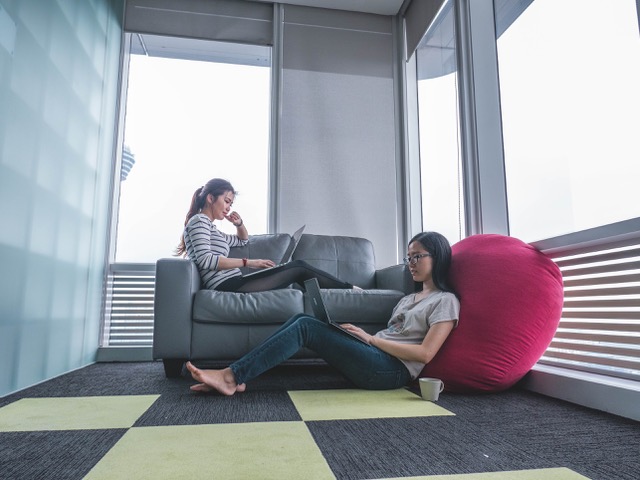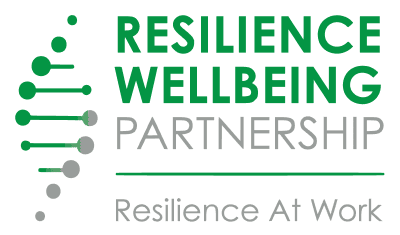What’s next in the world of workplace wellbeing: predictions for 2024 culture and beyond

As 2023 draws to a close, I invite you to grab a cuppa and take 2 minutes to read this thought-provoking article by Business Insider that gives us a glimpse into the future of working culture and sets the stage right up to 2030. It’s a must-read for business leaders, managers, HR leaders, and anyone involved in identifying trends and future-proofing their organisation.
I believe not just in responding to the future, but in actively shaping it, and for me, the piece underscores something crucial: now is the time to lay the groundwork, because companies not willing to embrace this shift risk falling behind.
Now is the time to think about getting ahead of the curve and place employee wellbeing at the front and centre of company culture.
Millennials and Gen Z – who have recently campaigned on social media for changes to working culture – are the leaders of tomorrow, and their values and vision for work are shaping the future landscape of what a modern workplace looks like. In shaping the future of work, they want to have meaningful, purpose-driven work and to be a part of an organisational culture that offers a supportive work environment. It’s about building work models that respects individual needs, fosters creativity, and prioritises a healthy work-life balance. This in turn leads to greater employee engagement, which we all know is a win-win.
Predications for workplace wellbeing and culture in 2024 and beyond
What else is on the horizon for the future of work in 2024?
As we step into 2024 and beyond, the landscape of the world of work continues to evolve, with a focus on comprehensive initiatives that build a culture of holistic health and support. With millennials demanding more from employers in terms of life-work balance and employee support, flexible ways of working, and a better balance between work and personal life, I can alrady see several trends shaping the future of workplace wellbeing:
Personalised wellbeing programmes: a shift towards tailored initiatives that consider individual needs and preferences. Employers are increasingly recognising that a one-size-fits-all learning and development approach doesn’t effectively address diverse employee needs. Expect initiatives that offer personalised wellness plans, integrating resilience and mental health support, sleep hygiene, fitness programmes, nutrition guidance, and stress management techniques. All of which boost employee productivity and job satisfaction and enhance employee loyalty.
Inclusive culture
Diversity, Equity, and Inclusion (DEI) in Wellbeing: Decision-making around wellbeing programmes will increasingly incorporate DEI principles to create a more inclusive work environment. Diversity and Inclusion initiatives will strive to be inclusive and culturally sensitive, addressing unique challenges faced by different demographics within the workforce.
Emphasis on employee well-being and mental health support: mental health will remain a central focus. Companies I have worked with are expecting to invest more in mental health resources, including counselling services, resilience programmes, and destigmatising conversations around mental health in the workplace. Flexible work arrangements and support networks will likely gain prominence to accommodate diverse mental health needs and reduce workplace stress.
Emerging technologies: latest trends and advancements in technology will play a pivotal role. Artificial intelligence(AI) driven and automation tools and apps are likely to become commonplace, offering real-time insights into employees’ wellbeing, personalised recommendations, and access to virtual mental health support. Wearable tech might also contribute to wellness by tracking and promoting healthier habits leading to more productive work.
Remote work adaptability, hybrid work models and employee experience: Remote and new work/hybrid work structures are here to stay, influencing wellbeing initiatives. I’m looking at transformative training and development strategies aimed at supporting remote workers’ mental health, combating isolation, and enhancing work-life balance. Employees want work policies that help with a sense of belonging and community and connection, even in virtual spaces.
The future of workplace wellbeing is dynamic, hybrid work environment with a positive work culture, emphasising not just physical health but also mental, emotional, and social aspects. Employers who prioritise comprehensive and adaptable approaches to wellbeing are likely to attract and retain the best talent, do well with retention and see increased productivity, engagement, and a more supportive workplace culture.
What are your thoughts on the future of work and the type of workplace culture businesses can create? What is your idea of a healthy work environment as we end 2023 and beyond? I’d love to hear from you





